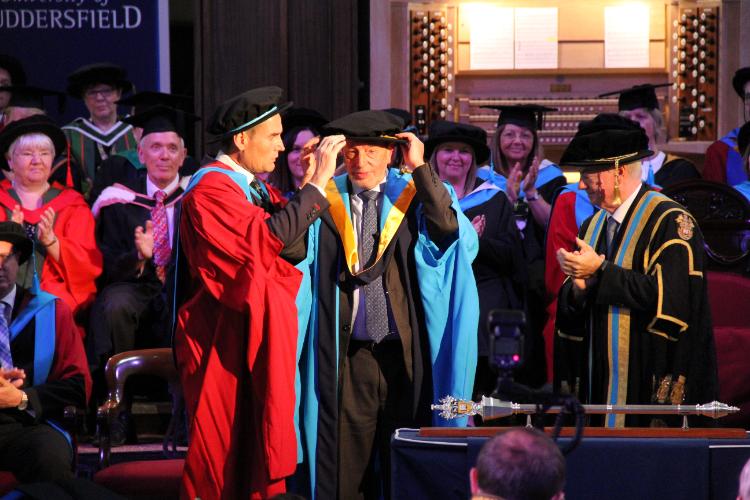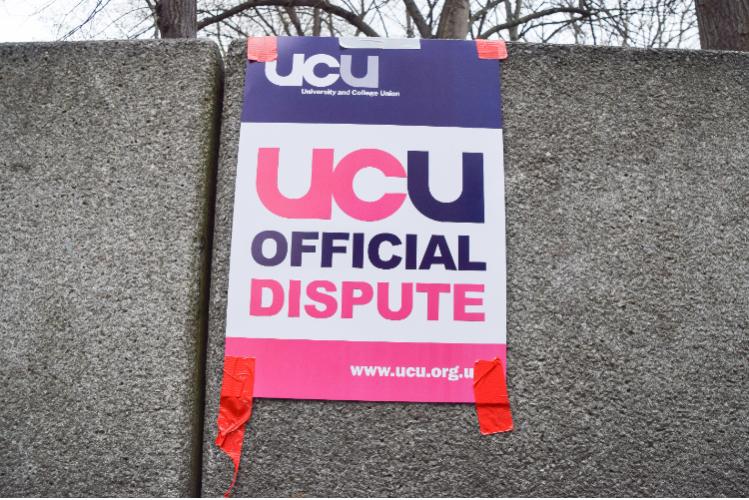“I would be a lot less forgiving if I were a student": The Lord Blunkett interview
7 min read
As a former education secretary, and now a university professor, Lord Blunkett’s involvement in the education sector has spanned many decades. He talks to Tali Fraser about university strikes, his plans for a skills revolution, and the need for a long term consensus to do right by the next generation
If Lord Blunkett, 76, was a student right now, he would be “far less forgiving” of the long-standing lecture strikes hitting universities. The former Labour education secretary thinks those missing lectures are “being very tolerant”. He says: “They’re much less bolshy than in my day when I was a student between 1969 and 1973. All of this is very calm now… I’d be organising with the Student Union, to have a dialogue with the local union representatives, and saying: ‘There’s got to be a better way of bringing pressure to bear than damaging our long-term interests.’”
Lord David Blunkett, professor of politics in practice at the University of Sheffield and an alumni of the university himself, says “it is a great pity” that the University and College Union (UCU) think strikes will make progress “when the only set of people they are hitting are the students”, as UCU members continue to strike after voting in April for a further six months of action.
A member of a trade union, with a PGCE in post-16 teaching, Blunkett supports members having a voice but adds: “We mustn’t play at trade unionism. In the past, it was absolutely fundamental that you were taking on and hurting the interests of the employer and thereby getting them to sit down and reach a settlement. In the higher education sector, I can’t see how that formula is working.”
“There was some element of consistency and continuity – and I think everyone’s crying out for that”
He brands the decision not to undertake marking – in an ongoing UCU boycott – for some students in their final year, affecting their final degree results, as “self-destructive” and “deeply hurtful”.
He has a similar view of teachers striking in schools, following the learning loss during the Covid pandemic, and wants to see the dispute settled as soon as possible: “It’s deeply unfortunate that at a time when we have very high absentee levels in schools, we are also seeing the industrial dispute taking children out of learning for additional days. Those same children are being disadvantaged twice over.”
“It takes two to tango,” he says – and urges the government to be prepared “to give a little” while asking the teacher unions “to take a deep breath” and if a better offer is presented to them “please, please, consider it carefully”.
 Lord Blunkett awarded degree from the University of Huddersfield (Credit: Stefan Kusinski / Alamy Stock Photo)
Lord Blunkett awarded degree from the University of Huddersfield (Credit: Stefan Kusinski / Alamy Stock Photo)
Blunkett adds: “This is, not just in terms of teacher morale and motivation and their ability to make ends meet, but also in terms of teacher recruitment, because you can’t recruit in the way we need to, if the message from the profession is that it’s not a worthwhile job to take on and you won’t be able to survive as a family.
“In the end, the damage that will be done will rebound on the ability of teachers to get out of the students the best that they can.”
To help these children, the Labour peer would like to see a “really-well funded” programme of mentoring and tutoring available to all children.
“Well-off parents, 40 per cent as it happens in London, buy tutoring for their children at one point or other in their education lifespan,” he says. “We’ve got to make that available for all children. And it will take time, but it will be catch up. It’ll be catch up for those in their early education experience.”
He would like there to be a “long term consensus” on education to put an end to the “stop/start that has existed since the Second World War”, notably including his own tenure as education secretary in this period. One of the things he regrets most was failing to embed the original programme of SureStart – so it was not just childcare but a more holistic approach – during his time in the department to make it impervious to a change in government.
“I regret that we didn’t embed that holistic approach which made it easy for an incoming government, rather foolishly to pull the plug on it,” Lord Blunkett says. The lack of continuity in education, he says, flagging that there were five education secretaries in four months (incumbent Gillian Keegan as the last appointee), is “clearly, extremely unhelpful”.
He adds: “It means that there hasn’t been continuity, it means that the senior civil servants have not had the continuing guiding hand and with 18 months to a general election, I think it’s really important that there is at least some understanding of what an incoming government might be prepared to pick up and continue so that it’s to the benefit of our country, not of an individual party.
“Gillian Shephard, who was my predecessor, in the run up to the ‘97 election, understood this very well and was prepared, within the confines of party politics and tribalism, to reach out and to try and work out what would I be prepared to back so that she could know that, were the Conservatives to lose, what she’d set in train would be carried forward. There was some element of consistency and continuity – and I think everyone’s crying out for that.”
Blunkett does believe there is “some common purpose” across the main parties on “what the long term landscape should look like”, with an emphasis on education alternatives, skills and AI.
 UCU dispute sign (Credit: Vuk Valcic / Alamy Stock Photo)
UCU dispute sign (Credit: Vuk Valcic / Alamy Stock Photo)
“We’ve got enormous vacancies. Yes, we’re all preaching that we should be facilitating young people being able to take up the jobs of the future. We all believe that the three routes – of apprenticeship, vocational learning and academic achievement – should be reinforced and, through lifelong learning, people should be able to return to learn,” he says. “Then we set about doing things in what can only be described, from my background, as cack handed.”
What Lord Blunkett would like to see, he adds, is “an incremental and modular approach” where people can build up high-quality qualifications “with a learning passport”. He wants to see Labour set up “a braver and more ambitious programme” of wider learning and he would like the report he chaired – commissioned by Labour leader Keir Starmer on learning and skills – “to make a contribution towards that”.
“I’ve phrased that very carefully,” he jokingly adds. The report contained 24 recommendations, including the creation of a National Skills Taskforce, a complete shake-up of career services and collaboration between the public and private sector to improve digital skills.
Blunkett not only brings his experience as a professor but also his background – sent to schools for the blind where he was told one of his only options in life was to become a machine operator – of overcoming poor education opportunities. Before going to university, he did a National Certificate in business studies on day release from the gas board, and got his A-levels in evening classes. He brands himself a “strong believer” in people having different ways and routes of learning, hence the need for “very high quality, properly accredited qualifications”. Blunkett adds: “It provided me with a massive incentive to make sure people don’t have to go through the barriers that I did.”
It is why he wants the T-Level route to succeed. But, while it is still being developed, he doesn’t want to see other level three qualifications lost: “There should be a pause, not in going forward with T-levels but with defunding alternatives… I want us to be able to retain very high-level alternatives while the timetable is being fully developed. At the moment, there is a real danger that we are going to throw the baby out with the bathwater.”
PoliticsHome Newsletters
Get the inside track on what MPs and Peers are talking about. Sign up to The House's morning email for the latest insight and reaction from Parliamentarians, policy-makers and organisations.
